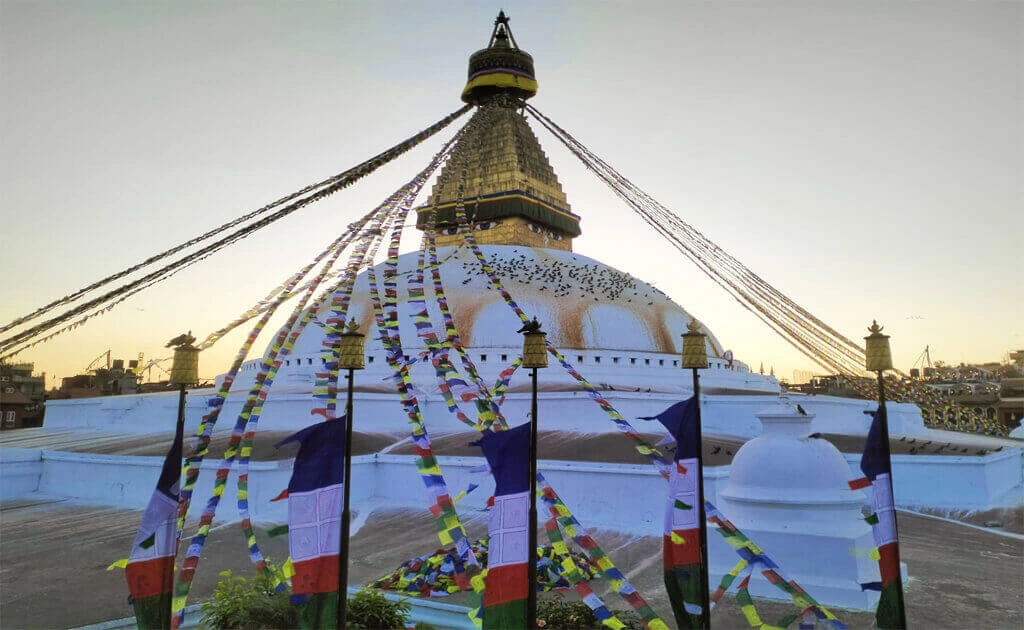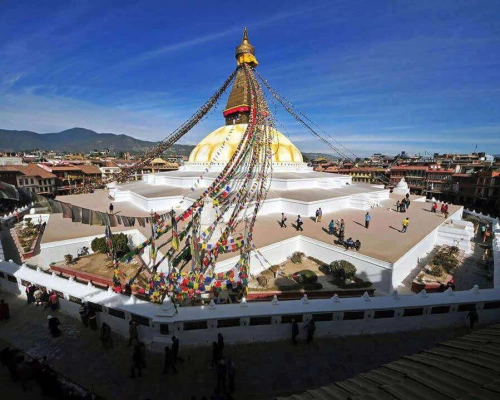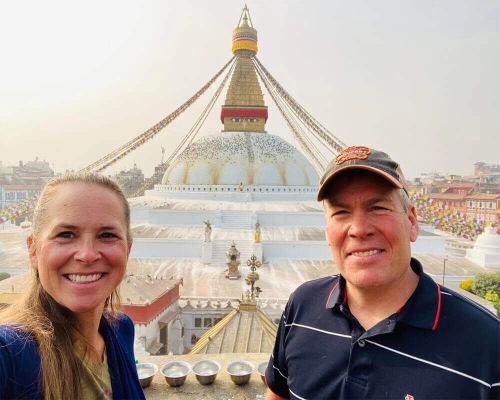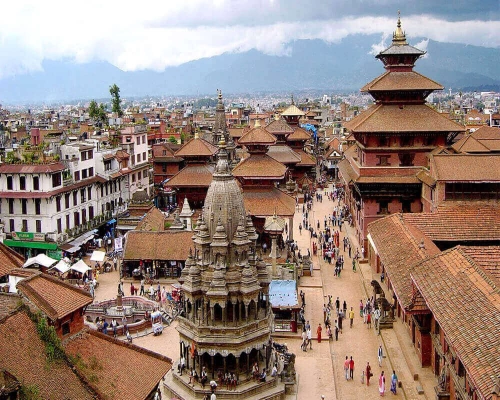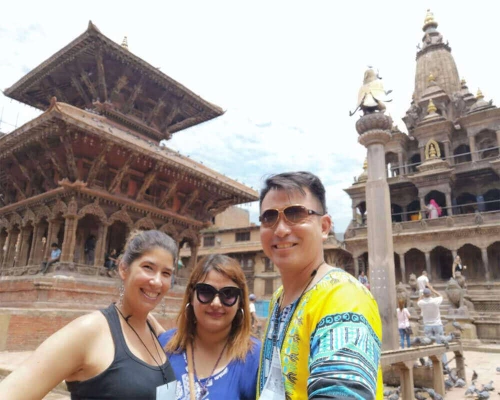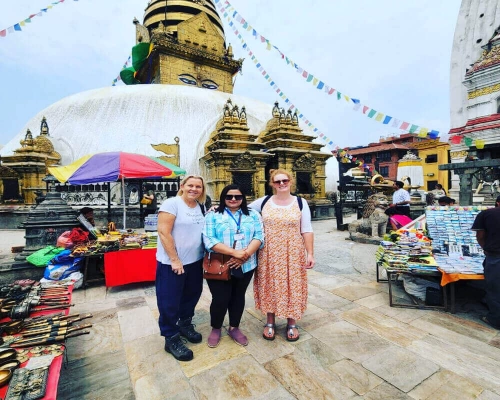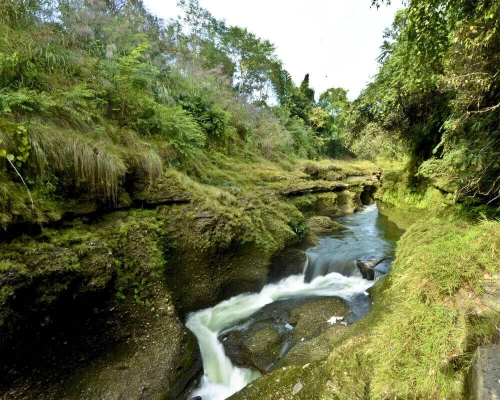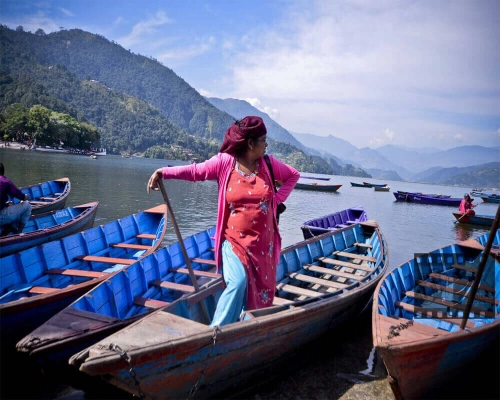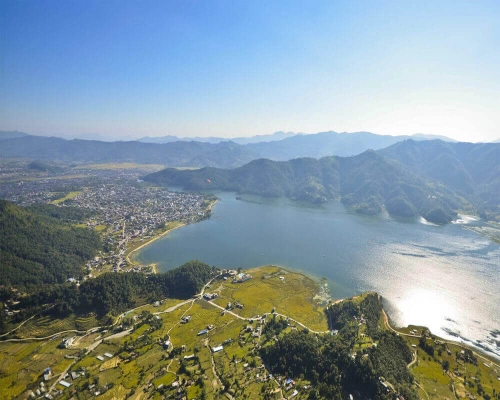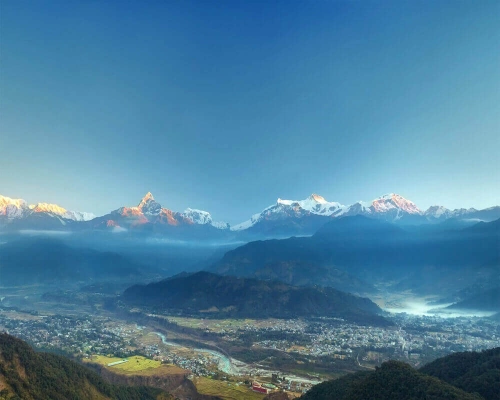Kathmandu Pokhara Tour, 6 Days Cost for 2025 and 2026
Welcome Nepal Treks offer Kathmandu Pokhara Tour Package 6 Days including information, packages and cultural experiences. To explore Kathmandu Pokhara Tour tourist destinations Kathmandu Pokhara . Book Kathmandu Pokhara Tour with cheap Price. Experience Kathmandu Pokhara Tour through the eyes of a local private guide! Kathmandu Pokhara Tour Package 6 Days Lowest price guarantee!
"Nepal is a land of sublime scenery, time-worn temples, and some of the best hiking trails on earth. It's the kind of country that lingers in your dreams long after you leave it. This is why so many travellers are drawn back to Nepal, armed the second time round with a greater appreciation of its natural and cultural complexity, a stout pair of walking boots and a desire for sculpted calf muscles." Lonely planet Travel Guide.
In 1984 seven sites in Kathmandu valley were included in UNESCO's World Heritage List. The narrow passes and traditional lifestyle in the heart of capital city will provide you different type of holiday experiences.
Pokhara an enchanting city nestled in a tranquil valley; it is the starting point for many of Nepal's most popular trekking and rafting destinations. The atmosphere on the shore of Phewa Lake is one of excited vitality. Pokhara is a place of remarkable natural beauty. The serenity of Phewa Lake and the magnificence of the fishtailed summit of Machhapuchhare (6,977 m) rising behind it create an ambience of peace and magic. This tour programme can be best for Leisure Holiday, Students, Honeymoon Couples.
Kathmandu Pokhara Tour in Autumn Season (Sept – Nov)
Autumn is a popular and favorable time to visit Kathmandu and Pokhara in Nepal. During this season, the weather is generally clear, dry, and stable, making it ideal for trekking, sightseeing, and outdoor activities. During autumn, visibility is excellent, providing stunning views of the Himalayan mountains, including the Annapurna and Langtang ranges. In Pokhara, the lakes and surrounding landscapes are particularly picturesque during autumn. You can enjoy boating on Phewa Lake and explore the scenic beauty of the Pokhara Valley. Autumn is a festive season in Nepal, with major Hindu festivals like Dashain and Tihar occurring during this time. It offers an opportunity to witness and participate in the vibrant cultural celebrations.
Kathmandu Pokhara Tour in Winter Season (Dec- Feb)
While winter season is a less popular due to colder temperatures, but has its own charm for those who prefer a quieter and more serene atmosphere. Winter often brings clear skies and good visibility, offering stunning views of the snow-capped Himalayan mountains. Winter is considered the off-peak tourist season in Nepal, so you can expect fewer tourists. This can be an advantage if you prefer a more peaceful and less crowded experience. While the temperatures are colder, the lakes in Pokhara maintain their scenic beauty. Winter allows for a more relaxed exploration of cultural and historical sites in Kathmandu, as you won't encounter the crowds that are typical during the peak seasons. However, keep in mind that winter days are shorter, with daylight hours decreasing. Plan your activities accordingly and be prepared for cooler evenings.
Kathmandu Pokhara Tour in Spring Season (March- May)
Spring is one of the most preferable seasons for visiting Kathmandu and Pokhara. It brings mild and comfortable temperatures to both cities. One of the highlights of spring is the blooming of various flowers, including rhododendrons in higher elevations. The landscapes are vibrant with colors which creates a picturesque and scenic environment. While daytime temperatures are pleasant, evenings can still be cool, especially at higher elevations. It's advisable to bring a light jacket or sweater for the evenings. However, spring is considered one of the best times to visit Nepal for a well-rounded experience, offering a mix of favorable weather, natural beauty, and cultural festivities.
Kathmandu Pokhara Tour in Monsoon Season (Jun - Aug)
During monsoon season, Nepal experiences heavy and consistent rainfall. The intensity of rain varies, but it can lead to landslides and flooding particularly in hilly and mountainous areas. The sky is often overcast with thick clouds during the monsoon season, reducing visibility of mountain ranges. This can impact scenic views, especially in higher-altitude areas. Despite the challenges posed by heavy rainfall, the monsoon season results in lush green landscapes, and the vegetation is at its most vibrant during this time. It's important to be aware of the potential travel disruptions caused by heavy rainfall, such as landslides and road closures. Flight delays and cancellations may also occur, so it's advisable to plan for flexible itineraries and keep updated on weather conditions.
Important Notes During Kathmandu Pokhara Tour
- While booking, we need the photocopy of your passport and you have to pay us a minimum of 10% payment of the total cost as advance.
- Nepal has a rich cultural heritage, and it's crucial to respect local customs and traditions. Dress modestly, especially when visiting religious sites, and remove your shoes before entering temples and monasteries.
- Always seek permission before taking photographs of people, especially in rural areas. Some locals may not be comfortable with photography, so it's essential to respect their privacy.
- Beverages, snacks, are not included in our packages, so you have to pay additional cash.
- You should have comprehensive travel insurance that covers tour activities including medical expenses and emergency evacuation.
- Carry a reusable water bottle and use water purification tablets like iodine, aquatabs tablets.
- Pack your clothes according to the seasonal basis.
- Carry enough Nepalese rupees for your trip, as not all places may accept credit cards.
- We suggest you not to book your international flights early as there may be sudden change in weather which will make your flights delay or even cancel.
- Be conscious of your environmental impact and practice responsible tourism. Dispose of waste properly, minimize plastic usage, and support local businesses and communities.
